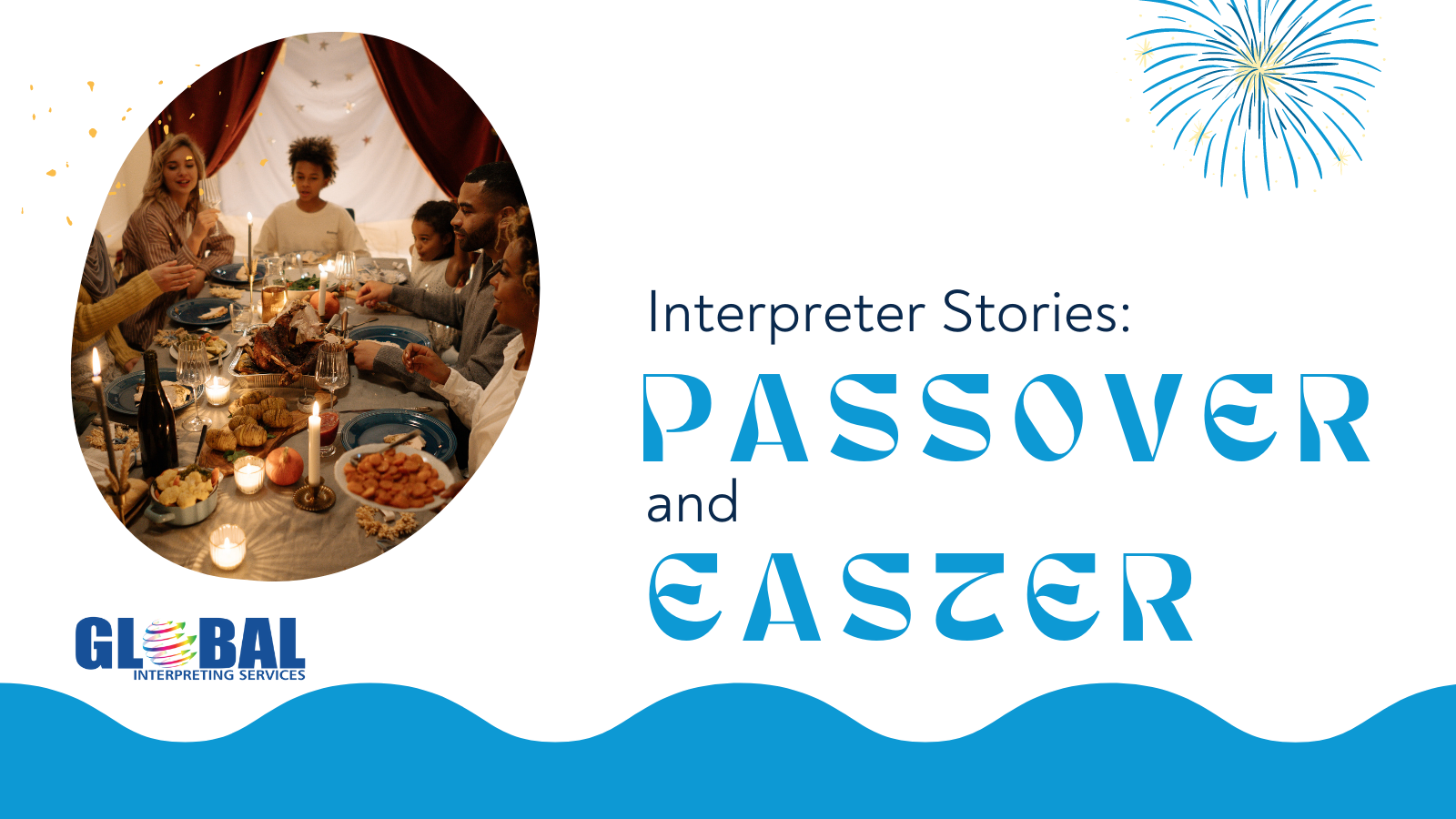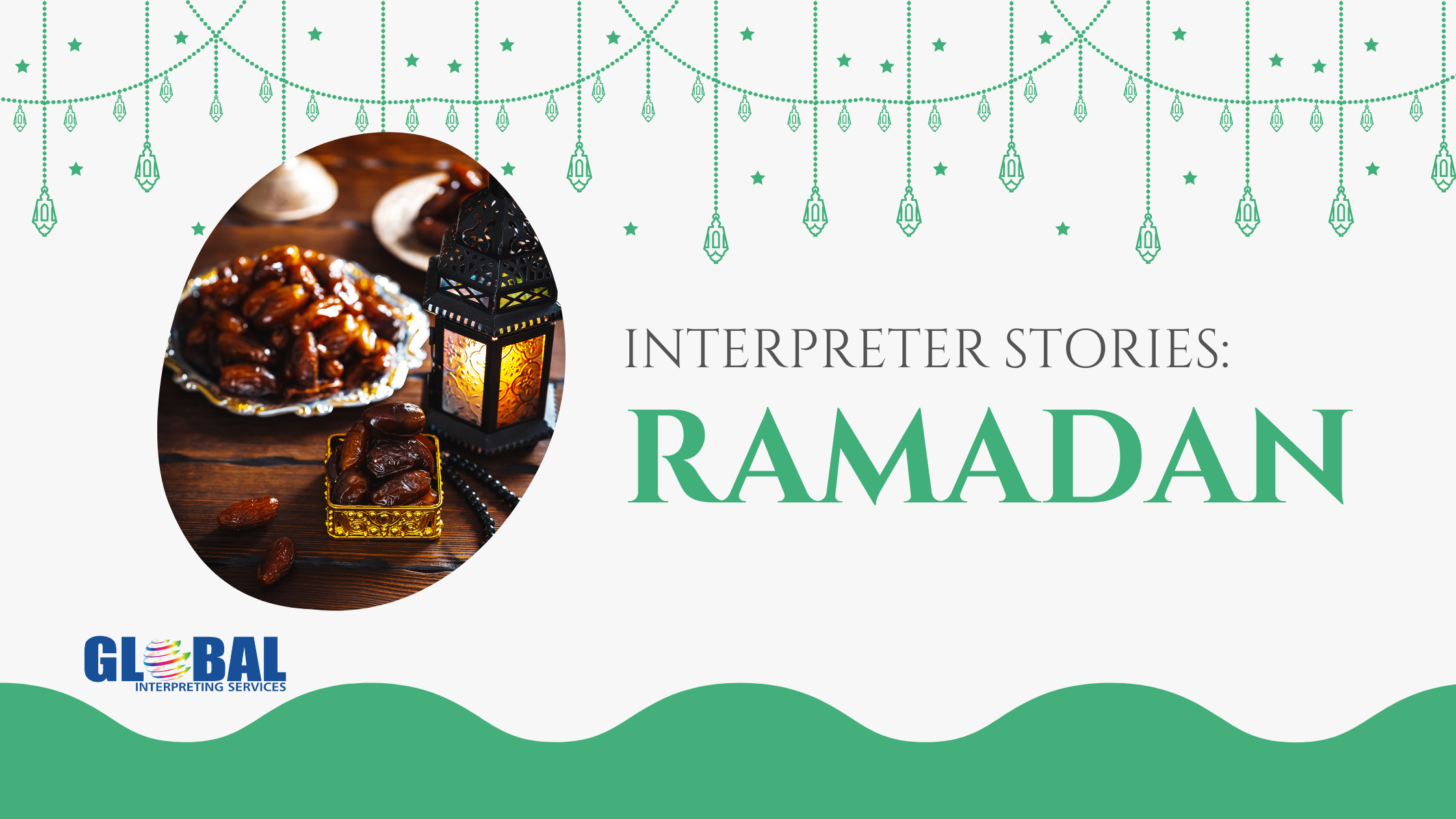Global Interpreting Services continues to highlight the many cultures we work within our interpreting services.
Our first story comes from a Romanian Interpreter, Susan Dines who has been doing interpreting for 33 years.
I celebrate the holiday of Passover, which reflects the exodus of Jewish People from Egypt after decades of slavery by their Pharaohs and under the leadership of Moses.
The Jewish Calendar is different than the secular calendar, and this year the holiday starts on April 15 and ends on April 23.
During this holiday, people who observe should only eat unleavened bread called Matzoh. If anybody has a medical condition where Matzoh could cause complications, we are asked to take care of our health first.
The first 2 evenings of the holiday are celebrated by retelling the story from biblical times and eating a very lavished dinner - celebrating that we are no longer slaves in the land of Egypt. These stories are very important for the children, and a little game of "hiding a piece of matzoh" is played where the child who finds the matzoh it gets a monetary reward.
This holiday falls during the season of spring, so it is very traditional after working hard to clean and prepare food in your home to treat yourself to something new. I, fortunately, have to replace the sectional couch in my family room, so that is the way I will be treating myself and the guests I will have during that week.
My funny memory of this holiday is when I accepted an invitation to an Orthodox synagogue for the second evening of the holiday. Services last around 3 hours before the meal, and another 45 minutes after. After much thinking about what I have gotten myself into as I do not have much patience, the Rabbi announced that if we wish a condensed version can be done in 45 minutes.
And so it turned out, and I was a very happy camper.
Our next story is about Easter. Many cultures and religions have traditions surrounding the holiday, but interpreter Marzena Matusinski shares her families version.
I am Polish and like most Poles, I am Roman Catholic. This year in April we celebrate Easter /Wielkanoc/ - according to the church, it is the biggest holiday for Catholics.
Easter in Poland is celebrated according to the Western Roman Catholic calendar. Easter Sunday falls on the first Sunday after the first full moon of spring. One week before Easter, Palm Sunday (in Polish niedziela palmowa) takes place. According to Catholic tradition, the day marks the entrance of Jesus in Jerusalem.
Of course, there are no palm trees in Poland, that's why we make from dried flowers on a stick or twig, decorative blotting paper palm trees. The bigger and prettier the better. My children were born in the USA and loved to make palm trees - especially when they were younger. This is a great opportunity to do something together with the children and then you have to take it to the church and then there is a palm contest for children.
We have a family secret ... a long time ago I made the palm that I won with my older daughter and now every year we only replace some parts of the decoration or add new ones and the palm still wins.
Later it's the big week - we go to church every day from Thursday until the end of the day. We pray at the tomb of Christ, there is the Way of the Cross on Good Friday and this is the only day of the year when there is no Mass in the church, only special prayers. Saturday before Easter - a favorite day - first we make Easter eggs – Pisanki. Eggs are boiled and painted, there are various methods of decoration. Some use store-bought kits which make the coloring and decorating easier, others continue to make dyes the traditional way – with boiled onion skins. If we use too much dye, then we eat colored eggs.
We go to the church with a basket in which we have food that we will eat on Sunday morning. The priest blesses the food. the baskets contain a sampling of Easter foods: pisanki, a piece of sausage or ham, salt and pepper, bread, a piece of cake, and an Easter Lamb made of sugar or even plastic.
Easter - traditionally in most churches, the mass begins on this day at 6 a.m., the Resurrection mass – is a ceremonial service and procession. Before the breakfast, in much the same way as for Christmas with the sharing of the opłatek (Christmas wafer), people share wedges of the blessed Easter eggs from the basket. They exchange wishes and a Wesołego Alleluja (Joyful Hallelujah) and later we meet the family.
Of course, we mix Polish and American traditions. We have Easter hung eggs. In Poland, Easter lasts 2 days. Monday is the day when we meet our extended family, and friends, go for walks. The last festive day is Easter Monday, known as Śmigus-Dyngus (Wet Monday), on which tradition requires that boys throw water over girls and spank them with willow branches. That is the original tradition. Now according to Culture Trip, “Traditionally guys soak girls on Monday, and Tuesday is time for revenge, with girls soaking the guys. It is said that if you don’t wake up early on Wet Monday, you will be awoken by having water poured on you.”
You can write a lot about Easter, but the most important thing is that these are holidays that are to make us realize that family-life is the most important and that with my difficulties you can start life anew and there is hope for better.
Check back as we add more interpreter stories from different cultures around the world.



